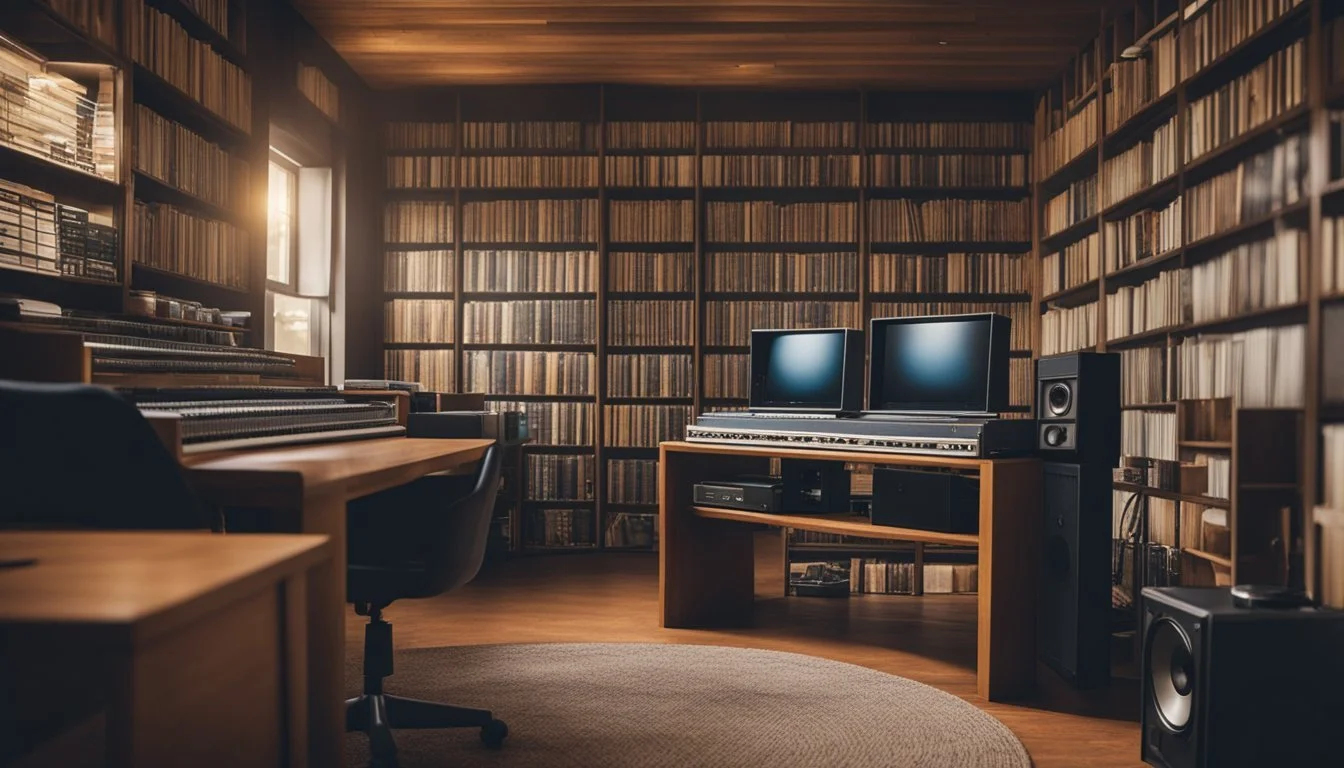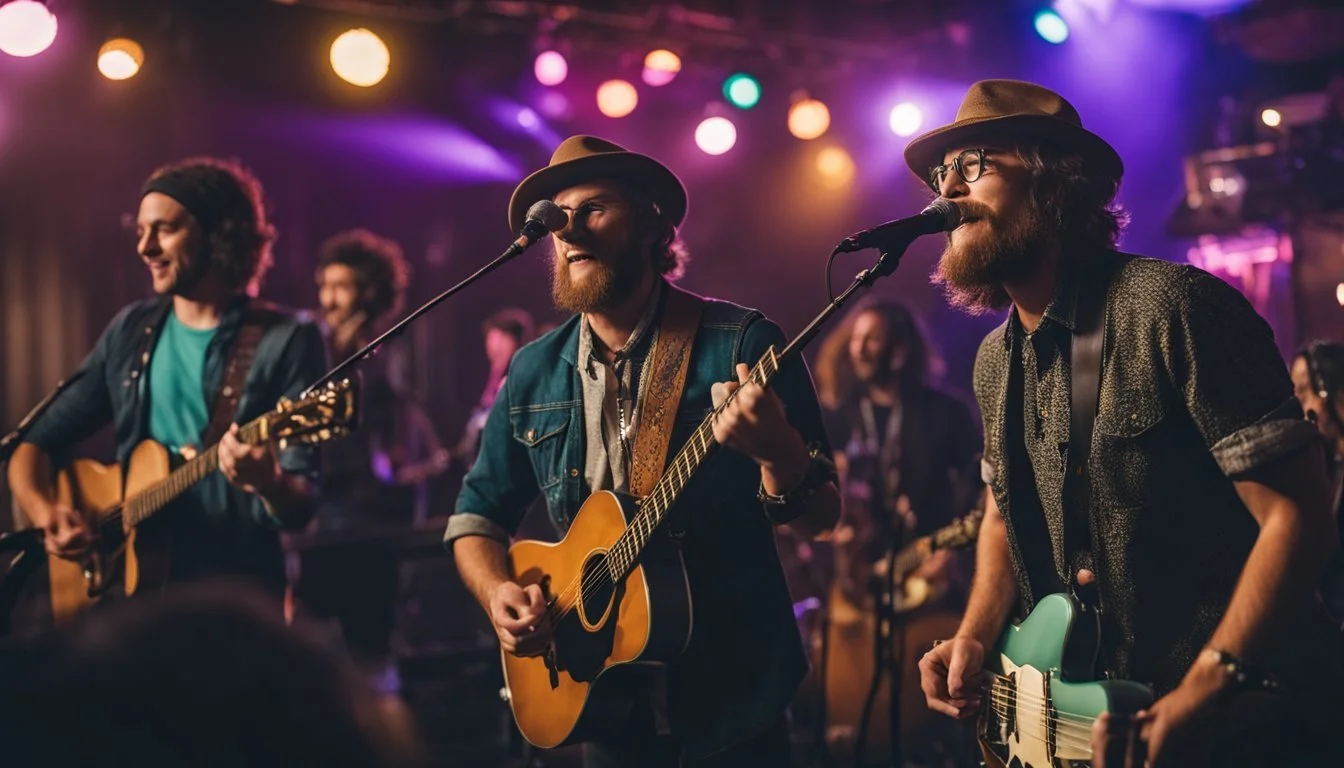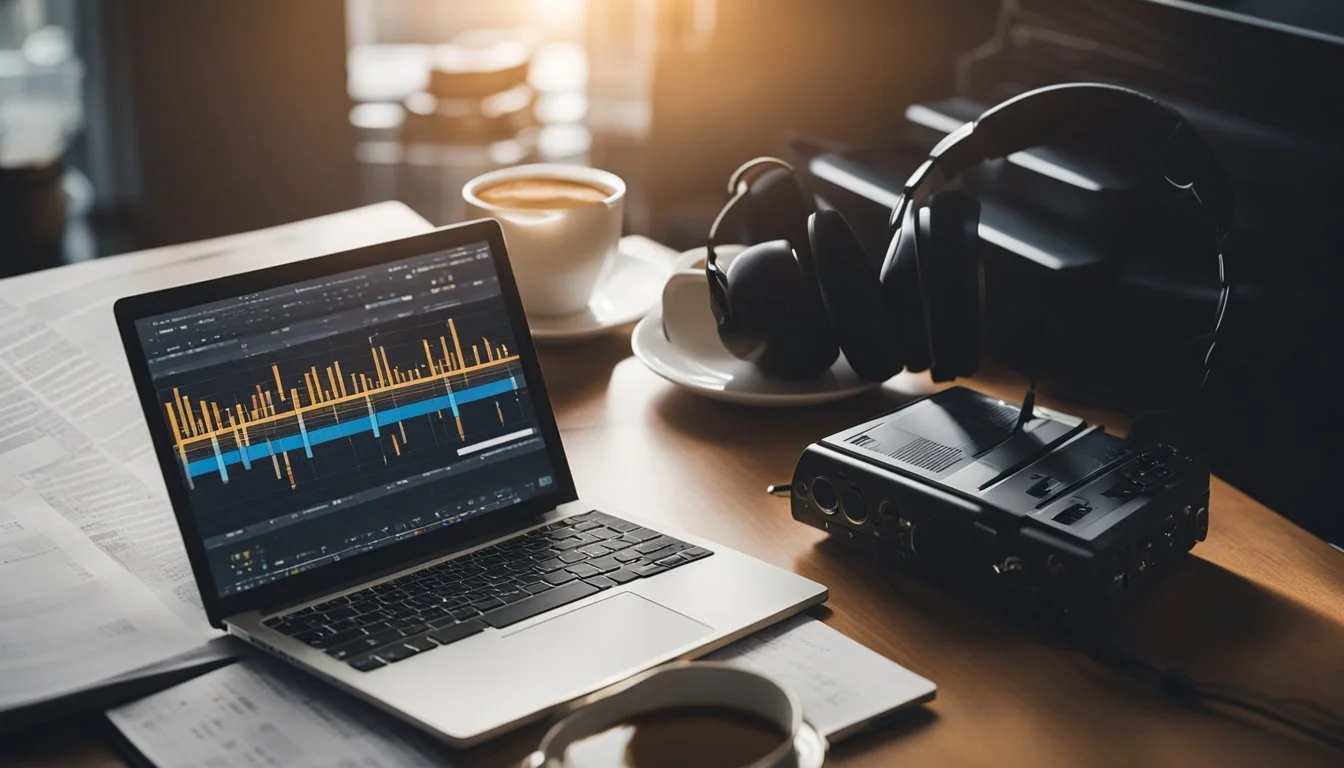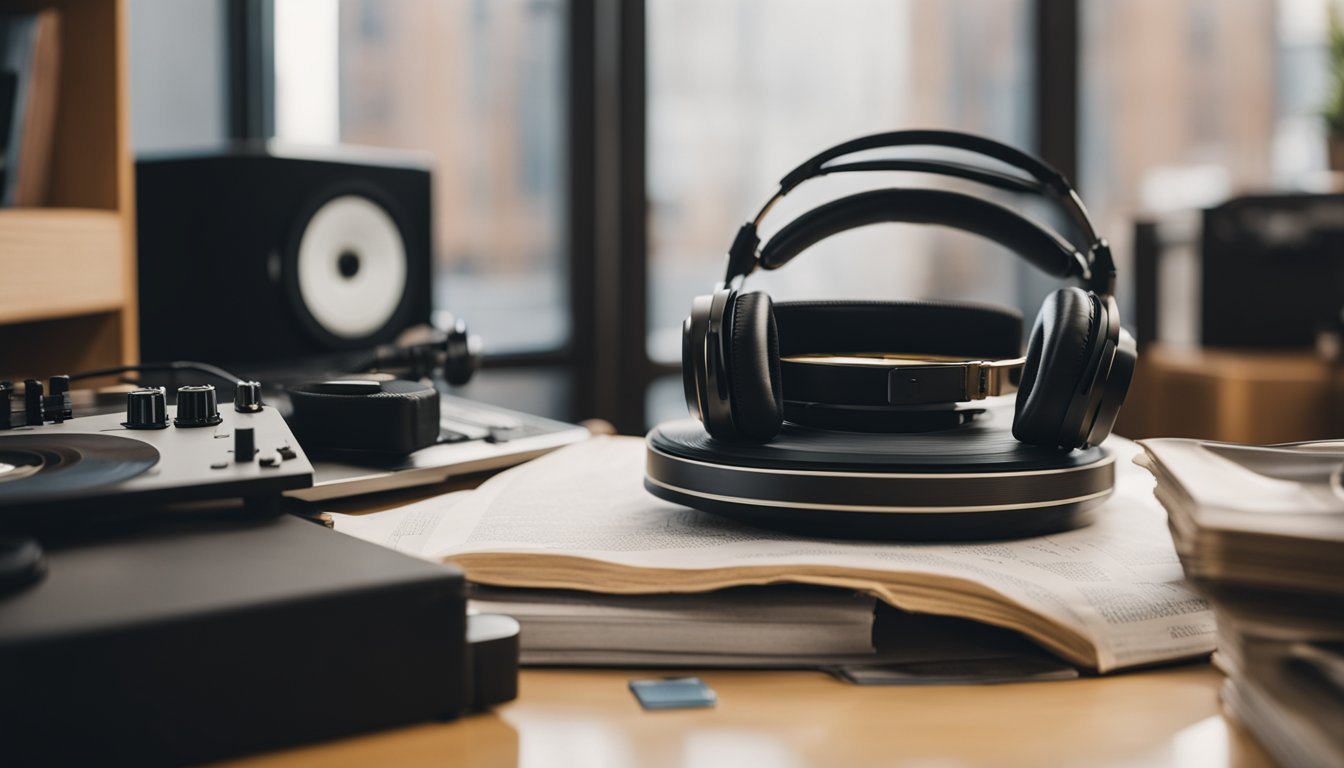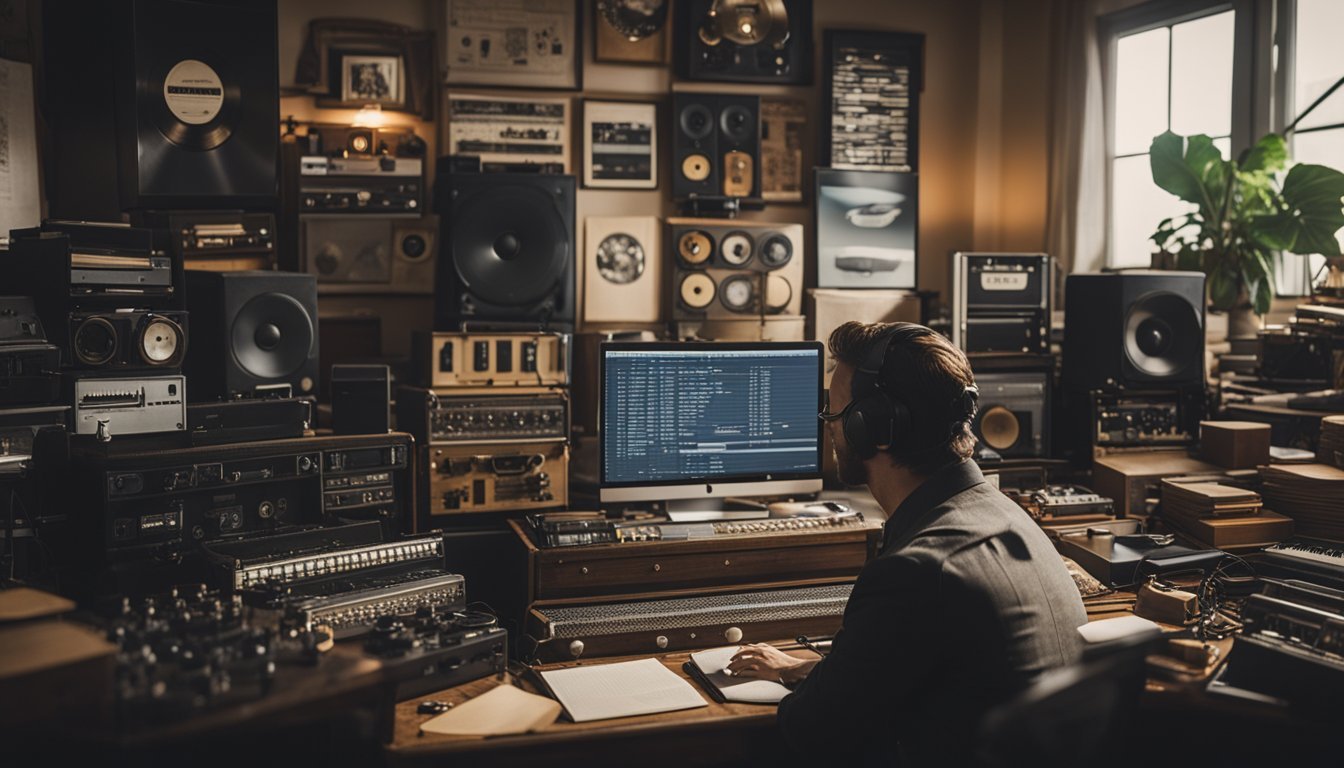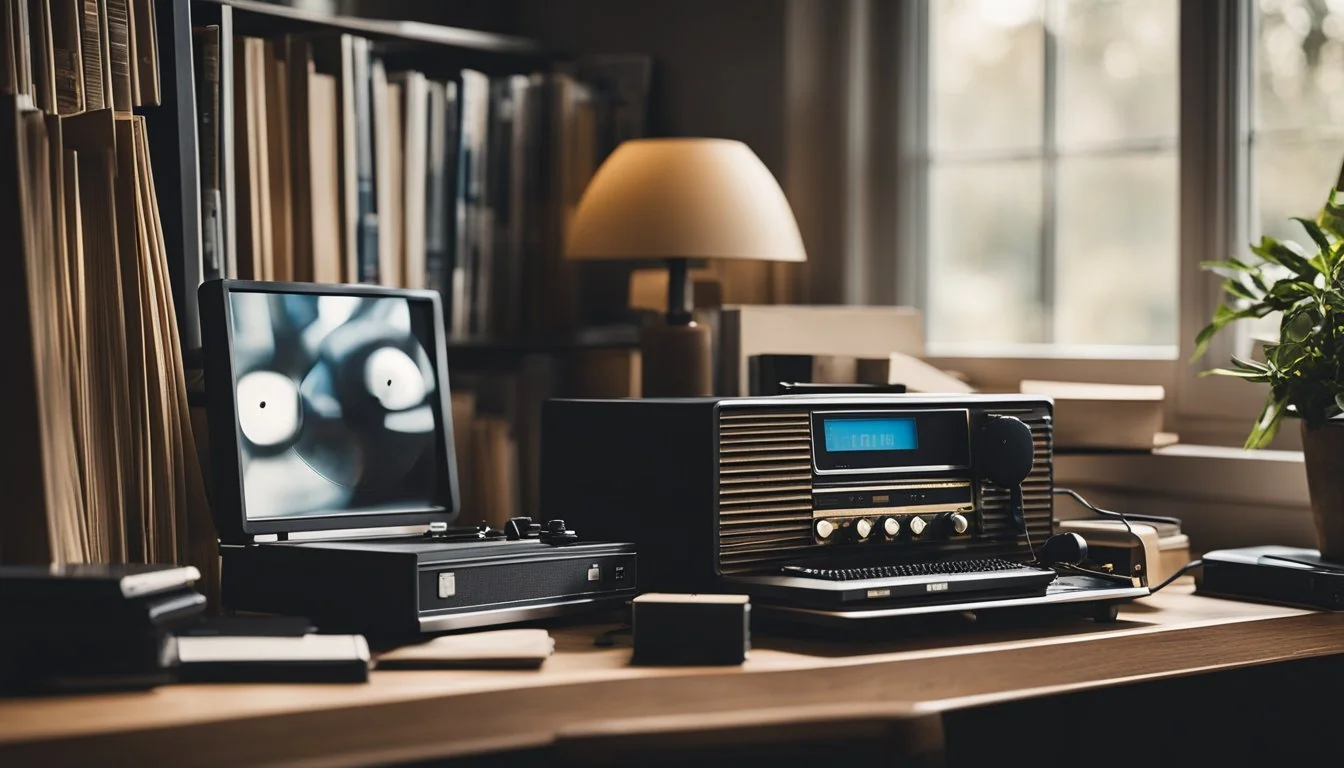7 Unconventional Ways to Find Music for Your Films
Unique Sources and Techniques
Finding the perfect music for your film can be a challenging yet rewarding process. Whether you are an independent filmmaker or part of a larger production team, music plays a crucial role in shaping the emotional landscape of your project. Discovering unconventional methods to source music can elevate your film and provide a unique auditory experience for your audience.
While some filmmakers rely heavily on traditional music licensing services, exploring less conventional routes can uncover hidden gems. These alternative strategies can lead to discovering fresh, original, and diverse musical pieces that perfectly align with your film's vision. By thinking outside the box, filmmakers can enhance the overall impact of their narratives.
1) Library Music Sites
Library music sites offer a vast range of tracks that filmmakers can use. These sites are known for their extensive collections and ease of access.
One popular option is the YouTube Audio Library. It provides both free music and sound effects, making it a valuable resource for creators looking for diverse audio options.
Another great choice is Bensound. This site has a wide array of tracks that are free for use, provided proper attribution is given. Bensound caters to various genres and moods, which is useful for filmmakers with specific needs.
Jamendo is also worth mentioning. This site offers a mix of free and paid tracks. It's beneficial for those who might need to upgrade to a larger selection over time.
These library music sites make it easier for filmmakers to find the right track without worrying about copyright issues. They can significantly enhance the quality of a film by offering professional-grade music.
2) Local Indie Bands
Diving into your local music scene can be a rich resource for finding music for your films. Indie bands often bring fresh and unique sounds that can set your project apart. These bands are typically more open to collaboration and custom requests, making it easier to obtain the right music for your vision.
Live performances provide the perfect opportunity to experience a band's sound and energy firsthand. Attend local gigs, open mics, and indie music festivals to discover emerging artists. The raw and authentic atmosphere of these events often leads to unexpected musical finds.
Connecting directly with local indie bands can also provide a personal touch to your film's soundtrack. Musicians appreciate the chance to feature their work and may even be willing to create an exclusive track tailored to your project’s needs.
Exploring the works of local indie bands not only supports community artists but also injects an organic, heartfelt element into your film. This personalized approach to sourcing music can greatly enhance the emotional impact of your scenes.
3) Online Music Marketplaces
Online music marketplaces are an excellent resource for filmmakers seeking the perfect soundtrack. These platforms offer a wide range of tracks, covering various genres and moods, making it easy to find something that fits the theme of any film project.
Tunefruit is a fun and fresh marketplace, known for its easy search options using popular genres and tags. It allows quick identification of tracks that match specific moods or themes.
Shutterstock, a well-known name in stock media, also provides a substantial collection of music tracks. Their platform allows filmmakers to access high-quality music and even offers the assistance of account managers for personalized support.
Storyblocks is another valuable resource, offering music, sound effects, and video footage. Their licensing options are affordable, making it accessible for different types of projects.
These marketplaces simplify the search for music, providing extensive libraries that cater to diverse needs. Many offer both single purchase options and subscription models, helping filmmakers manage costs efficiently.
4) Film Composers on Freelance Platforms
Finding film composers on freelance platforms has become increasingly popular. These platforms, like Upwork and SoundBetter, offer access to a vast pool of talented individuals.
Freelancers on these platforms often have extensive portfolios showcasing their work. This makes it easier for filmmakers to review their previous projects and select composers that align with their vision.
Rates for freelance composers can vary widely. For instance, some freelancers charge by the hour, while others may offer flat rates for specific projects. This flexibility allows filmmakers to manage their budgets effectively.
Freelance platforms also provide reviews and ratings from past clients. This helps filmmakers make informed decisions based on the experience and satisfaction of other users.
Networking is crucial even on these platforms. Building a good working relationship with a composer through clear communication can lead to better results and potential future collaborations.
Platforms like Upwork and SoundBetter often include additional services such as mixing and mastering. This can be beneficial for filmmakers who need comprehensive audio solutions for their projects.
Overall, leveraging freelance platforms can be a practical and efficient way to find the right composer for your film's musical needs. These platforms can match filmmakers with experienced composers suited to a variety of styles and budgets.
5) Music Festivals
Music festivals can be gold mines for finding unique tracks for films. These events bring together diverse artists with a range of musical styles. Attendees have the chance to discover emerging talents and niche genres that aren't always available on mainstream platforms.
Festivals like the Experimental Film, Dance, and Music Festival in Ontario and California showcase experimental and avant-garde music suitable for unconventional films.
Exploring local and international festivals can introduce filmmakers to varied cultural music. Festivals often have live performances which provide an authentic feel that recorded tracks might lack.
Networking with artists and other filmmakers at these festivals can lead to collaborations. By being present at these events, filmmakers can access unreleased or exclusive tracks directly from the artists.
Many festivals also offer recordings of live performances. These recordings can serve as valuable sources for background scores or scene-setting music, adding a live and dynamic element to films.
6) Social Media Music Communities
Social media has transformed the way filmmakers discover music. Platforms like Instagram, TikTok, and Twitter are filled with artists sharing their work. By following musicians and related hashtags, filmmakers can find tracks that fit their projects.
Online music communities are another resource. Groups on Facebook, subreddits on Reddit, and forums dedicated to music offer spaces to connect with creators. Filmmakers can seek recommendations or collaborate with composers directly.
YouTube also serves as a hub for music discovery. Channels dedicated to specific genres, playlists, and music videos provide an easy way to explore new sounds. Engaging with the comment sections can also lead to unexpected finds.
These communities not only provide access to music but also foster collaboration. Many artists are eager to work on film projects for exposure. Reaching out to musicians within these communities can result in custom compositions tailored to the filmmaker's vision.
7) College Music Programs
College music programs provide a rich resource for filmmakers seeking original compositions. These programs often have students eager to showcase their talents. They offer diverse styles and fresh ideas.
Many colleges have dedicated courses on composing for film and TV. Students in these programs are trained to work with directors and understand the nuances of scoring.
Collaborations with college orchestras or bands can result in high-quality recordings. These ensembles are typically professional-level and can bring a unique touch to your project.
Networking with music professors can also open doors. They often have industry contacts and can recommend talented students or alumni.
Some colleges offer non-credit courses for those outside the major. This allows more students to participate, increasing the pool of available musicians.
Institutions like Yale and USC have top-notch music programs. They provide various ensembles and opportunities, including access to orchestras and glee clubs.
Reaching out to nearby colleges or universities can be a practical and cost-effective way to find original music. Many students are enthusiastic about gaining real-world experience.
Understanding the Importance of Unique Film Scores
Unique film scores are vital to crafting a memorable cinematic experience. They significantly contribute to setting the mood and enhancing the narrative, making them an indispensable element of effective storytelling.
Setting the Mood
Music has the power to evoke emotions. A film score, especially an unconventional one, can establish the mood from the very first scene. Take Jóhann Jóhannsson's score for Sicario, for example. His use of descending lines and relentless percussive sounds creates an atmosphere of tension and unease. This artistic choice not only aligns with the film's narrative elements but also heightens the viewer's emotional engagement.
In another instance, the score of Inception by Hans Zimmer employs a unique mix of orchestral and electronic sounds. These unconventional elements help craft an otherworldly yet intense environment, immersing the audience fully. Similarly, in experimental films, composers often use non-traditional instruments or structures, which can add an additional layer of depth and originality to the visual storytelling.
Enhancing Narrative
A unique film score serves as more than just background music; it actively enhances the narrative. It can provide insights into characters' emotions and backstories. For example, Thomas Newman’s score for American Beauty uses minimalist themes to reflect the underlying tension and surreal undertones of the story. This approach can make complex narratives more accessible and provide subtle cues about plot developments.
Furthermore, film scores can signify cultural contexts or historical settings. In Black Panther, Ludwig Göransson combined traditional African music with contemporary orchestration. This fusion successfully underscores the cultural richness of Wakanda and supports the narrative's themes of heritage and innovation. By doing so, scores can add depth and authenticity to films, offering viewers a richer, more immersive experience.
Leveraging Lesser-Known Music Sources
Discovering unique soundtracks for your films involves tapping into indie music platforms and utilizing sound libraries. These sources offer a wealth of lesser-known tracks that can make your film stand out.
Exploring Indie Music Platforms
Indie music platforms like Bandcamp and SoundCloud host a diverse array of tracks from independent artists. These platforms often provide music that mainstream sources overlook.
Independent artists often showcase a broader range of genres and experimental sounds. Purchasing tracks on Bandcamp directly supports creators, offering both financial support and creative freedom.
Using tags and user-generated playlists, filmmakers can easily find obscure and niche music. Engaging with these platforms allows filmmakers to discover hidden gems that can perfectly match their cinematic vision.
Utilizing Sound Libraries
Sound libraries, such as Freesound and Crate Stash, provide access to a variety of samples and soundscapes. These sources offer royalty-free options, which can be essential for budget-conscious projects.
Freesound's extensive database includes field recordings, ambient noises, and unique sound effects. Crate Stash focuses on finding rare audio samples, ideal for those seeking a distinct auditory experience.
Many sound libraries include filtering options to refine searches based on genre, mood, or tempo. These features help filmmakers quickly pinpoint the perfect audio components to elevate their films.By leveraging sound libraries, filmmakers can integrate diverse and uncommon sounds that enhance the narrative and emotional impact of their work.


